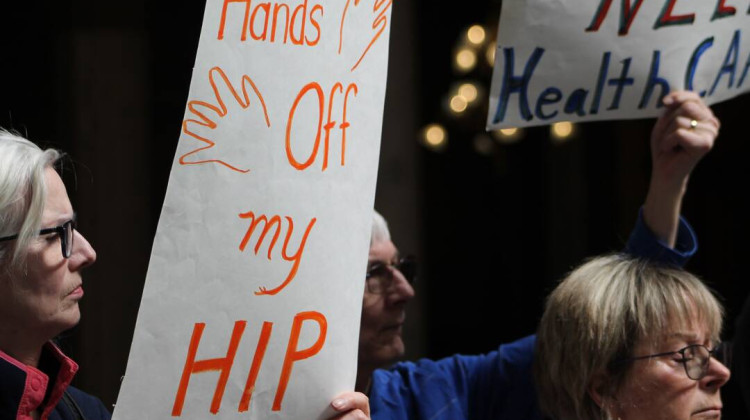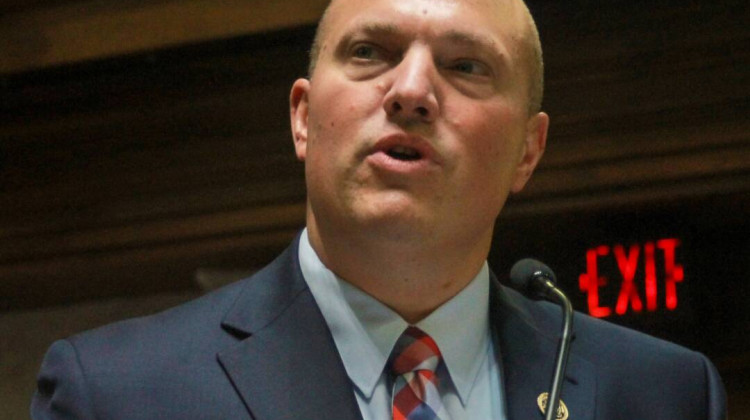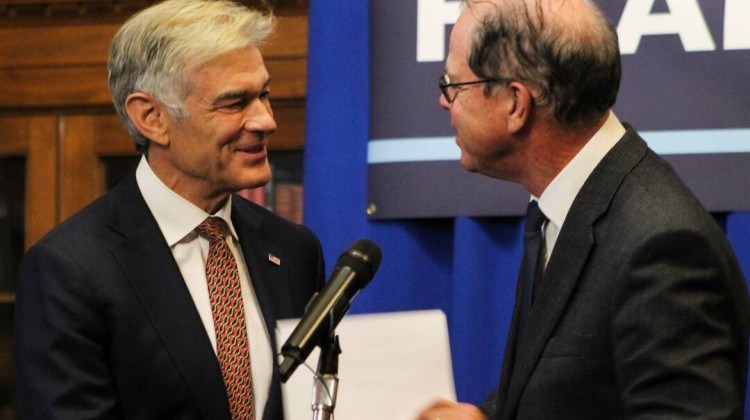JUDITH RUIZ-BRANCH
On Chicago’s Southwest side, a colorful mural pays tribute to America’s essential workers. It features three of the community’s very own: Rosalinda, a retail clerk; Javier, a postal carrier and Juan, a butcher shop worker. Underneath their portraits are the words El Corazon de Chicago: The heart of Chicago.
Rosalinda is a cashier at her brother’s corner store. She says in Spanish that it’s open every day from 8 a.m. to 9 p.m., and she’s there every day. “Not all day, but every day,” she says, laughing.
Like many in this neighborhood, Rosalinda is undocumented, so we’re not using her last name. She says that as the pandemic began, business increased because people in the area were avoiding supermarkets. But once everything opened back up, business slowed.
“It hasn’t affected us much in regards to people coming to the store,” she says. “But in regard to the economy, yes, because people don’t have money now.”
Rosalinda paid a personal price, too. She and her husband were laid up with COVID-19 in April, and didn’t work for a month. They weren’t able to get any government aid, but her brother helped with the rent.
Hear more from the workers on WNIN's "COVID Between the Coasts" podcast
Javier Montaño, the postal carrier on the mural, is a first generation Mexican-American who grew up in this community, Pilsen. Even though the rain is pouring, he doesn’t miss his scheduled interview outside, in front of the mural. That’s how it is with essential workers.
“Many of them are making minimum wage and are just trying to support their families and get through the day with a handicap, whether it be their status or whether it be their lack of pay,” he says.
He questions the way aid programs handed out money during the COVID crisis. “Some people were staying home making way more on unemployment than these people that were grinding day in and day out. And I’m not the person that makes the rules or policy but that to me doesn’t seem fair.
Juan, who is undocumented, is the third person in the mural. He left home as a teen and followed his brother to the United States.
“I’m from Guatemala and I came to this country to work hard and to get ahead,” he says in Spanish. “I don’t have a lot of experience because I come from a remote village.”
He’s grateful for the opportunity to live here, because he can support his family back home.
Being in the mural is an emotional experience for Juan. It’s the first time he’s ever been a part of something like this. And he thinks it’s good for people to see “so people can see that we can come out ahead, and we keep fighting despite the pandemic and everything going on.”
Juan’s hours have been cut at times during the pandemic. But he tries to stay positive — for himself and his family. He says his father recently had to have his feet amputated, so Juan and his siblings send money back home to support the family.
He says you have to keep pushing forward and trying your very best. Because "in those situations lies the experience of how to live life."
For Rosalinda, Javier and Juan, life has had to go forward, even in this crisis. But there’s hope to be found in that.
"We’re all spokes on a wheel," Montanero says. "We all have a job to do and unfortunately we’ve been on the front lines. We’re bringing people things they order, we’re their connection to the world."
Hope, it seems, has become the most essential of all.
This report was adapted from WNIN's "COVID Between the Coasts" podcast.
This story was produced by Side Effects Public Media, a news collaborative covering public health.
 DONATE
DONATE







 Support WFYI. We can't do it without you.
Support WFYI. We can't do it without you.